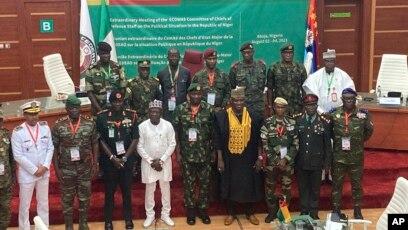United African Military Leaders Convene in Nairobi to Enhance Regional Security and Cooperation
In a landmark assembly focused on reinforcing security and fostering military collaboration, senior defense officials from across Africa gathered in Nairobi under the auspices of the United States Africa Command (Africom). This summit brought together top-ranking military personnel with the shared objective of confronting urgent security threats, improving joint defense mechanisms, and deepening partnerships between African nations and global military stakeholders. The discussions highlighted the critical need for unified responses to challenges such as terrorism, transnational crime networks, and humanitarian emergencies. Hosting this event in Kenya’s capital underscores both the immediacy of Africa’s evolving security landscape and the growing significance of international alliances in addressing these multifaceted issues.
Collaborative Efforts Among African Military Leadership to Tackle Security Threats
The gathering emphasized a collective approach among African armed forces aimed at strengthening regional stability amid rising conflicts and insecurity. Delegates engaged in comprehensive dialogues centered on enhancing intelligence exchange systems, conducting coordinated training programs, and investing in resilient military infrastructure that supports sustainable defense capabilities. Speakers underscored that effective peacebuilding requires synchronizing military initiatives with diplomatic efforts—military strength alone cannot secure lasting tranquility without political engagement.
The summit agenda prioritized several core areas:
- Counterterrorism Measures: Developing innovative tactics to diminish extremist group influence across volatile regions.
- Cross-Border Security Operations: Coordinating efforts to disrupt illicit trafficking routes involving arms, drugs, and human smuggling.
- Humanitarian Response Coordination: Streamlining assistance delivery within conflict-affected zones to mitigate civilian suffering.
The closing sessions reflected a unanimous commitment among participants to establish enduring frameworks capable not only of responding swiftly to immediate crises but also promoting long-term peacebuilding objectives throughout Africa. This unified stance signals an increasing awareness that only through concerted action can member states effectively confront shared risks while fostering safer environments continent-wide.
Nurturing Strategic Alliances & Resource Sharing: Pillars for Enhanced Defense
African commanders at the Africom summit stressed that forging strategic partnerships is indispensable for bolstering regional security architecture against common threats like cybercrime alongside traditional concerns such as terrorism or trafficking. A key theme was leveraging resource sharing—pooling assets including technology platforms, logistics support, and manpower—to build more robust collective defenses capable of rapid deployment when crises arise.
- Synchronized Training Exercises: Promoting interoperability by conducting joint drills designed around real-world scenarios faced by multiple countries’ forces.
- Comprehensive Intelligence Networks: Creating secure channels for timely information exchange critical for preemptive threat identification.
- Cohesive Logistical Frameworks: Aligning supply chains during multinational operations ensures efficient use of resources under pressure situations.
| African Nation | Main Initiative Highlighted |
|---|---|
| Kenya | Tightened counterterrorism cooperation with U.S. forces focusing on East Africa’s hotspots |
| South Africa | Pioneering regional peacekeeping training programs enhancing rapid response capabilities |
| Nigeria | Spearheading maritime patrol collaborations securing Gulf of Guinea shipping lanes |
This collaborative spirit exemplifies how pooling expertise fosters resilience not just internally but also projects a united front internationally—strengthening Africa’s role within global security frameworks while addressing localized vulnerabilities effectively.
Tactical Recommendations: Advancing Continental Defense & Interoperability Initiatives
The summit concluded with actionable proposals aimed at elevating continental defense readiness through enhanced cooperation mechanisms tailored toward emerging threats spanning physical battlefields as well as cyberspace domains. Key recommendations include:
- Integrated Intelligence Platforms : Establishing real-time data-sharing systems enabling swift threat detection across borders — vital given recent increases in cross-national insurgent activities.[Source]
- Expanded Joint Drills : Increasing frequency & complexity of multinational exercises simulating hybrid warfare scenarios enhances operational cohesion between diverse armed forces . li >
- Optimized Resource Investment : Prioritizing funding towards shared infrastructure projects such as command centers , communication hubs , & logistics bases maximizes efficiency . li >
- Continental Cybersecurity Collaboration : Developing unified cyber defense protocols protects critical national infrastructures from escalating digital threats targeting governments & militaries alike . li >
| African Partner Country | Main Strategic Emphasis |
|---|---|

